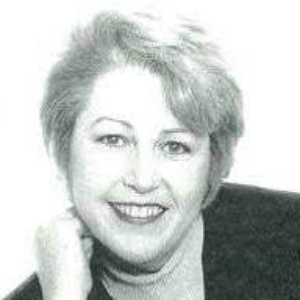Title : Does language matter? Implementing recovery language with a hybrid gamification - Coaching model to humanize staff and patients
Abstract:
Medical professionals, especially those with long careers, can easily fall into patterns of concise language that is not consistent with best practice recommendations for non-biased or judgmental plain language that is removed from medical jargon. This requirement is for all disciplines and in all clinical and academic settings. It is more urgent than ever is today’s diverse and global populations. This practice meets recommendations of the American Diabetes Association, American Psychiatric Nurse Association, Joint Commission, National Alliance on Mental Illness, National Academy of Medicine (previously Institute of Medicine), and Substance Abuse and Mental Health Services Administration. The focus of this presentation - that of the application of Recovery-based language and principles - was initially seen as being very disruptive. What it in fact did, was to level the playing field and humanize professionals and our patients.
The author presents what began as a full-day Recovery to Practice seminar for 40 multidisciplinary medical professionals in a long-term psychiatric Veteran’s hospital. This RTP program was the culmination of a 5-year evidence-based collaboration between APNA and SAMHSA. This was followed by an 8-month pilot study using gamification and coaching theories. The culture and environment were dramatically used in this program. A third phase of this project was completed under Lean Sigma to develop a Recovery language handbook for patient groups. Finally, dozens of group note templates were developed to incorporate appropriate language for a diverse employee base with widely varying education and language skills.
Action research was initiated with a pre and post-test administered to participants. Attendees were also followed up after 6 months. An article has been written reflecting both qualitative and quantitative analysis but has not yet been accepted for publication. The author has published, presented posters, and spoken across the country on this innovative practice and it has been widely accepted.
Audience Take Away:
- Recognize the relationship between thoughts, language, and behaviors
- Contrast recovery-based language and non-patient centered (traditional) language
- Identify an example of plain, recovery-based language for their own clinical setting
- Initiate a personal list of biased and judgmental language with substitute recovery language
- Participants will quickly learn examples and patterns of language that does not support recovery principles of patient care. They will be directed in the art of finding recovery-based appropriate word usage.
- Medical professionals, especially those with long careers, can easily fall into patterns of concise language that is not consistent with best practice recommendations for non-biased or judgmental plain language that is removed from medical jargon. This requirement is for all disciplines and in all clinical and academic settings. It is more urgent than ever is today’s diverse and global populations. This practice meets recommendations of the American Diabetes Association, American Psychiatric Nurse Association, Joint Commission, National Alliance on Mental Illness, National Academy of Medicine (previously Institute of Medicine), and Substance Abuse and Mental Health Services Administration.
- The author presents what began as a full-day Recovery to Practice seminar for 40 multidisciplinary medical professionals in a long-term psychiatric Veteran’s hospital. This was followed by an 8-month pilot study using gamification and coaching theories. The culture and environment were dramatically used in this program. A third phase of this project was completed under Lean Sigma to develop a Recovery language handbook for patient groups. Finally, dozens of group note templates were developed to incorporate appropriate language for a diverse employee base with widely varying education and language skills.
- Action research was initiated with a pre- and post-test administered to participants. Attendees were also followed up after 6 months. An article has been written reflecting both qualitative and quantitative analysis but has not yet been accepted for publication.



